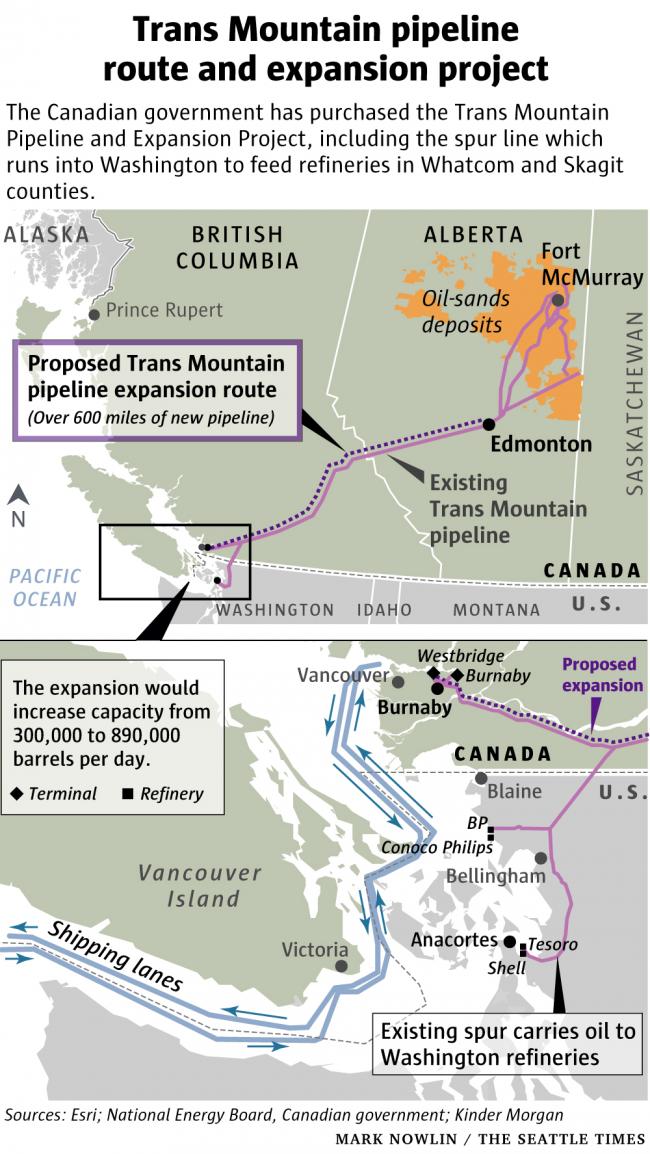Articles Menu

This is a piece of the much larger acquisition of the Trans Mountain Pipeline, announced last month. An option to more than double the capacity of the small Washington spur line would create the potential for exports from the state — and huge pushback.
The Canadian government is purchasing a vital link in Washington’s oil network — a nearly 70-mile pipeline spur running through Whatcom and Skagit counties that feeds crude oil to four refineries, according to financial-disclosure documents.
This is a piece of the much larger acquisition of the Trans Mountain Pipeline — announced May 29 — that runs more than 700 miles from Edmonton, Alberta, to tidewater at Burnaby, British Columbia.
The Canadian government is taking over the U.S. spur line at a time when tensions between the two countries are on the rise as President Donald Trump and Prime Minister Justin Trudeau feud over trade. But they both are bullish on exporting oil, with Trudeau’s acquisition of the pipeline project representing a striking affirmation of the quest to carve out new markets for the vast oil-sand reserves in Alberta.
“Trans Mountain expansion project is of vital interest to Canada and Canadians,” Bill Morneau, the federal finance minister, told reporters after the sale was announced. “Our government’s position is clear: It must be built, and it will be built.”
The Canadian government does not intend to be a long-term owner of the project, but will work on a sale to new owners or owners. In the meantime, a new crown corporation will be created to take over operation of the pipeline and expansion project, and funding will be provided for the 2018 construction season.